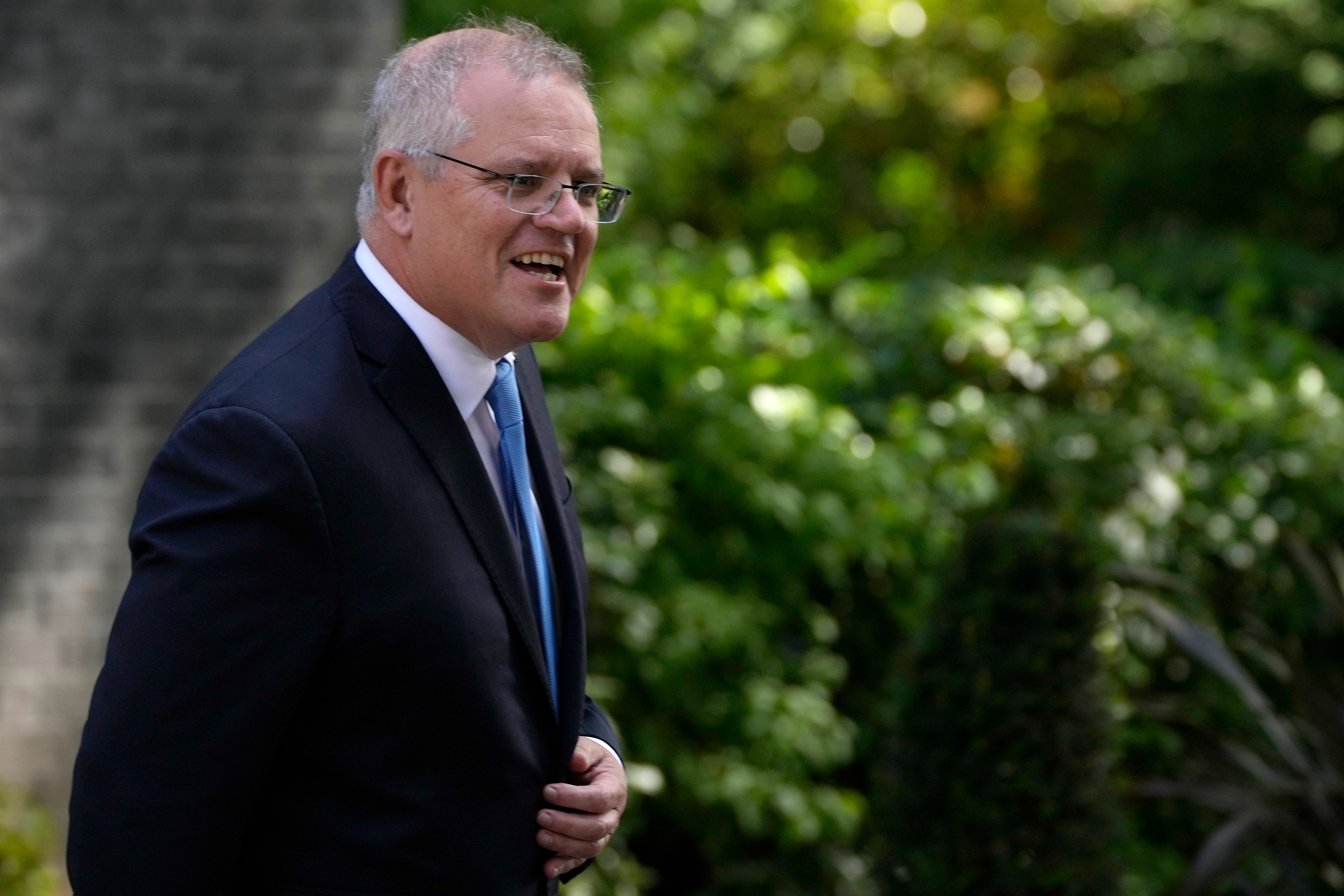Australian PM says he understands France’s ‘disappointment’ over submarine snub
But says Australia must make decisions that are in its ‘sovereign national defence interest’

Your support helps us to tell the story
From reproductive rights to climate change to Big Tech, The Independent is on the ground when the story is developing. Whether it's investigating the financials of Elon Musk's pro-Trump PAC or producing our latest documentary, 'The A Word', which shines a light on the American women fighting for reproductive rights, we know how important it is to parse out the facts from the messaging.
At such a critical moment in US history, we need reporters on the ground. Your donation allows us to keep sending journalists to speak to both sides of the story.
The Independent is trusted by Americans across the entire political spectrum. And unlike many other quality news outlets, we choose not to lock Americans out of our reporting and analysis with paywalls. We believe quality journalism should be available to everyone, paid for by those who can afford it.
Your support makes all the difference.Australia’s prime minister has said he understands France’s “disappointment” after his government ditched a multibillion-dollar submarine deal in favour of a pact with the United States and Britain.
Scott Morrison defended his decision to pull out of the £30 billion agreement with the French, claiming that it was made because of “national defence interest”.
By joining the US and UK in Aukus, a trilateral security partnership, Australia cancelled the deal signed in 2016 for France’s Naval Group to build a fleet of conventional submarines.
Instead, the Australian navy is to acquire a more capable fleet of nuclear-powered – although not nuclear-armed – vessels with US and UK assistance.
France has since reacted with fury, saying it was not given sufficient warning of the $90bn (£65bn) deal’s cancellation and that the Aukus announcement was “unacceptable behaviour between allies and partners”.
At a briefing on Sunday, Mr Morrison said: “Of course it’s a matter of great disappointment to the French government, so I understand their disappointment.
“But at the same time, Australia like any sovereign nation must always take decisions that are in our sovereign national defence interest.”
Meanwhile, newly appointed foreign secretary Liz Truss made a full-throated defence of the UK’s security pact with the US and Australia, claiming the agreement showed Britain’s readiness to be “hard-headed” in defence of its interests.
Writing in the Sunday Telegraph, Ms Truss said the agreement – widely seen as a counter to increasing Chinese military assertiveness in the region – underlined the UK’s commitment to the Indo-Pacific.
Britain would always be a “fierce champion” of freedom and free enterprise around the world, she said, “but freedoms need to be defended, so we are also building strong security ties around the world.”
“That is why last week the Prime Minister announced, alongside our friends President Biden and Prime Minister Morrison, the creation of a new security partnership called Aukus,” she wrote.
“It shows our readiness to be hard-headed in defending our interests and challenging unfair practices and malign acts.”
Earlier, in a series of interviews with French television, Europe Minister Clement Beaune accused Britain of returning to the “American lap”.
He said: ”Our British friends explained to us they were leaving the EU to create Global Britain. We can see that this is a return into the American lap and a form of accepted vassalisation.
“The UK is clearly trying to find its feet, perhaps there was a lack of thought about the strategic future. Today they are hiding in the American fold. I hope that will not be their policy for the decades to come.”
He later added: “We see through this partnership, this strategic alliance and after the Kabul crisis, that Global Britain seems to be more about a US junior partner than working with different allies.”
Join our commenting forum
Join thought-provoking conversations, follow other Independent readers and see their replies
Comments